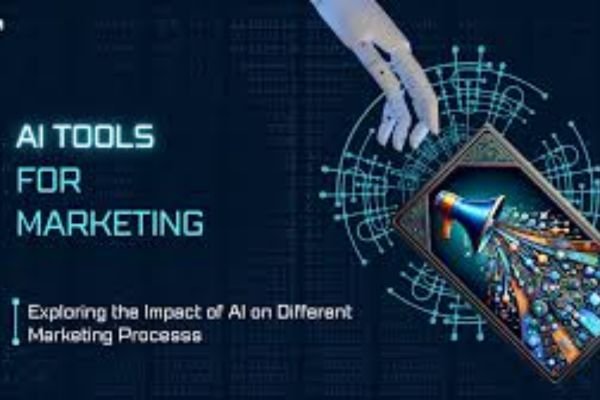Artificial Intelligence (AI) has transformed marketing by introducing unprecedented levels of efficiency, personalization, and data-driven decision-making. Businesses today leverage AI-powered tools to automate repetitive tasks, analyze vast amounts of consumer data, and deliver hyper-targeted campaigns that resonate with audiences. From chatbots that enhance customer service to predictive analytics that forecast sales trends, AI is no longer a futuristic concept—it’s an essential component of modern marketing strategies.
The rise of AI in marketing is fueled by its ability to process and interpret data at a scale that is impossible for humans alone. Marketers can now predict consumer behavior, optimize ad spending, and generate high-converting content in minutes—tasks that once took hours or even days. AI also bridges the gap between businesses and their audiences by enabling real-time interactions and personalized experiences, fostering stronger customer relationships, and boosting brand loyalty.
As competition intensifies across industries, companies that fail to adopt AI-powered marketing tools risk falling behind. Whether it’s through automated email campaigns, AI-driven social media management, or dynamic pricing strategies, AI empowers marketers to stay ahead of trends and maximize return on investment (ROI). This article explores the most impactful AI tools in marketing, their benefits and challenges, and the future of AI-driven marketing innovations.
The Role of AI Tools in Modern Marketing
Artificial Intelligence (AI) has revolutionized marketing by automating processes, enhancing personalization, and optimizing decision-making. AI tools analyze vast amounts of data in real time, allowing marketers to predict trends, refine targeting, and improve customer engagement with unprecedented precision. One of the most significant contributions of AI is hyper-personalization. Machine learning algorithms analyze consumer behavior, purchase history, and browsing patterns to deliver tailored content, product recommendations, and dynamic pricing. This level of customization increases conversion rates and fosters brand loyalty.
AI also enhances content creation and optimization. Tools like ChatGPT and Jasper generate high-quality copy for ads, emails, and blogs, while Surfer SEO ensures content ranks well on search engines. AI-powered video tools like Synthesia enable brands to produce professional videos without expensive production costs. In advertising and paid media, AI-driven platforms such as AdCreative.ai generate high-converting visuals, while predictive analytics tools like Optimove optimize ad spending by identifying the most profitable customer segments. AI also powers programmatic advertising, automating real-time bidding for maximum ROI.
Another critical application is customer service automation. Chatbots and virtual assistants handle inquiries 24/7, improving response times and reducing operational costs. Sentiment analysis tools like Brandwatch monitor social media to gauge public perception, allowing brands to adjust strategies proactively. Despite its advantages, AI in marketing requires careful implementation to avoid privacy concerns and over-automation. However, when used strategically, AI tools empower marketers to work smarter, scale campaigns efficiently, and stay ahead in a competitive digital landscape. As AI continues to evolve, its role in marketing will expand, making it an indispensable asset for businesses aiming for growth and innovation.
Types of AI Tools for Marketing
AI is transforming marketing by automating tasks, enhancing personalization, and optimizing campaigns. Here are 9 powerful AI tools every marketer should know, along with their key features and official links:
1. ChatGPT (by OpenAI)
Use Case: Content creation, chatbots, email marketing, and customer support.
Why It’s Useful: It generates human-like text for ads, blogs, and social media posts.
🔗 https://openai.com/chatgpt
2. Jasper AI
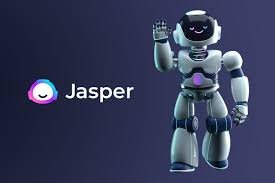
Use Case: AI-powered copywriting for ads, blogs, and product descriptions.
Why It’s Useful: It helps scale content production with brand-aligned messaging.
🔗 https://www.jasper.ai
3. HubSpot AI
Use Case: CRM automation, email marketing, and lead scoring.
Why It’s Useful: Enhances customer segmentation and predictive analytics.
🔗 https://www.hubspot.com/products/ai
4. Surfer SEO
Use Case: AI-driven SEO optimization for content.
Why It’s Useful: It analyzes top-ranking pages and suggests keyword optimization.
🔗 https://surferseo.com
5. Synthesia
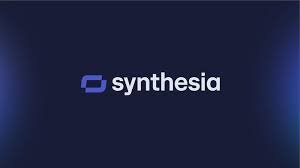
Use Case: AI video generation with virtual avatars.
Why It’s Useful: It creates professional videos without actors or cameras.
🔗 https://www.synthesia.io
6. AdCreative.ai
Use Case: AI-generated ad creatives for social media & Google Ads.
Why It’s Useful: Designs high-converting visuals in seconds.
🔗 https://www.adcreative.ai
7. Optimove
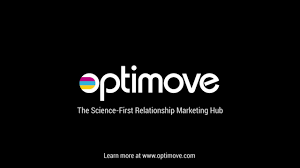
Use Case: Customer retention & predictive marketing.
Why It’s Useful: It uses AI to predict churn and optimize retention campaigns.
🔗 https://www.optimove.com
8. Phrasee
Use Case: AI-powered email & push notification optimization.
Why It’s Useful: It generates high-performing subject lines and CTAs.
🔗 https://www.phrasee.com
9. Brandwatch (by Cision)
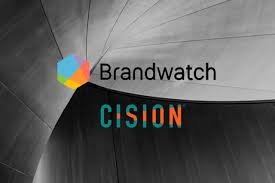
Use Case: Social listening & sentiment analysis.
Why It’s Useful: Tracks brand mentions and analyzes consumer sentiment in real time.
🔗 https://www.brandwatch.com
AI Tools For Marketing In Sections
1. AI Content Creation & Copywriting Tools
- ChatGPT (OpenAI) – It generates blog posts, ad copy, and social media content.
- Jasper – An AI-powered writing assistant for marketing copy and SEO content.
- Copy.ai – This tool creates high-converting ad copy, emails, and product descriptions.
- Writesonic – AI-generated blog articles, landing pages, and ads.
- Grammarly – Enhances writing clarity, tone, and grammar.
2. AI-powered customer Segmentation & Personalization
- HubSpot AI Analyzes customer data for targeted campaigns.
- Salesforce Einstein – Predicts customer behavior for personalized marketing.
- Dynamic Yield – Personalizes website and email content in real time.
- Optimizely – AI-driven A/B testing and personalization.
3. Predictive Analytics & Lead Scoring Tools
- IBM Watson – Forecasts trends and customer buying patterns.
- Google Analytics AI (GA4) – Provides predictive insights on user behavior.
- 6sense – AI-driven account-based marketing (ABM) and lead scoring.
- Leadspace – Identifies high-intent leads using AI.
4. AI Chatbots & Conversational Marketing
- Drift – AI-powered chatbots for lead generation and customer support.
- Intercom – Conversational AI for personalized customer interactions.
- ManyChat – Chatbot automation for Facebook Messenger & SMS.
- Zowie (formerly ChatBot.com) – Automates customer service with AI.
5. AI Email Marketing Automation
- Mailchimp AI – Optimizes send times and subject lines.
- Phrasee – Generates high-performing email subject lines.
- Persado – AI-driven emotional language optimization for emails.
- Omnisend – An AI-powered email and SMS campaign automation.
6. AI Social Media & Ad Optimization Tools
- Hootsuite Insights – AI-powered social listening and trend analysis.
- Meta AI (Facebook & Instagram Ads) – Automates ad targeting and bidding.
- AdCreative.ai – Generates high-converting ad creatives.
- Pattern89 – AI-driven ad performance predictions.
7. AI Visual & Video Marketing Tools
- Canva AI (Magic Studio) – AI-generated designs, images, and templates.
- Synthesia – Creates AI-powered video avatars for marketing.
- Runway ML – AI video editing and effects.
- Pictory – Converts text into engaging video content.
8. AI SEO & Content Optimization
- Surfer SEO – AI-driven content optimization for search engines.
- Frase.io – AI-powered content research and SEO recommendations.
- Clearscope – Optimizes content for keyword relevance.
- MarketMuse – AI content strategy and topic clustering.
9. AI Voice & Audio Marketing
- Murf.ai – AI voiceovers for videos and ads.
- Descript – AI-powered audio and video editing.
- Play.ht – Converts text into natural-sounding voiceovers.
10. AI Influencer & PR Tools
- Influencity – AI-powered influencer discovery and analysis.
- Traackr – AI-driven influencer relationship management.
- Cision – AI media monitoring and PR analytics
The Transformative Benefits of AI in Marketing
Artificial Intelligence (AI) has revolutionized marketing by introducing unprecedented efficiency, precision, and scalability. Businesses that leverage AI-powered tools gain a competitive edge by automating tedious processes, enhancing customer engagement, and maximizing return on investment (ROI). Below, we explore the key benefits of AI in marketing in greater depth.
1. Automation of Repetitive Tasks – Boosting Efficiency & Productivity
One of the most immediate benefits of AI in marketing is its ability to automate repetitive, time-consuming tasks, allowing marketers to focus on strategy and creativity.
- Content Generation & Scheduling – AI tools like ChatGPT and Jasper can draft blog posts, social media captions, and ad copy in seconds, reducing manual writing time.
- Email Automation – Platforms like Mailchimp and ActiveCampaign use AI to send personalized emails based on user behavior, eliminating the need for manual segmentation.
- Social Media Management – AI-powered tools (e.g., Hootsuite, Buffer) analyze optimal posting times and automate content distribution.
- Chatbots for Customer Support – AI-driven chatbots (Drift, Intercom) handle FAQs, bookings, and lead qualification 24/7, reducing human workload.
By automating these tasks, marketing teams can redirect efforts toward high-impact strategies, such as campaign optimization and creative storytelling.
2. Hyper-Personalization – Enhancing Customer Engagement & Loyalty
AI enables hyper-personalized marketing by analyzing vast amounts of customer data to deliver tailored experiences.
- Dynamic Content Personalization – AI tools (HubSpot, Dynamic Yield) customize website content, product recommendations, and emails based on user behavior.
- Behavioral Targeting – AI tracks browsing history, purchase patterns, and engagement to serve highly relevant ads (e.g., Facebook AI, Google Ads Smart Bidding).
- Predictive Personalization – AI anticipates customer needs (e.g., Netflix’s recommendations, Amazon’s “Frequently Bought Together” suggestions).
Personalized experiences increase engagement, conversion rates, and customer retention, as consumers respond better to brands that understand their preferences.
3. Data-Driven Decision-Making – Replacing Guesswork with Precision
Traditional marketing often relies on intuition, but AI leverages big data analytics to make informed decisions.
- Predictive Analytics – AI forecasts trends (IBM Watson, Google Analytics AI) to optimize inventory, ad spending, and campaign timing.
- Sentiment Analysis – AI scans social media and reviews (Brandwatch, Sprout Social) to gauge public opinion and adjust messaging.
- Lead Scoring & Prioritization – AI ranks leads (6sense, Salesforce Einstein) based on likelihood to convert, improving sales efficiency.
By eliminating guesswork, businesses reduce wasted ad spend and allocate budgets more effectively.
4. Real-Time Analytics & Agile Campaign Adjustments
AI provides real-time insights, allowing marketers to tweak campaigns for maximum impact.
- Ad Performance Optimization – AI adjusts bids, audiences, and creatives in real time (Google Smart Bidding, Meta AI).
- A/B Testing at Scale – AI rapidly tests multiple ad variations (Optimizely, Unbounce) to determine the highest-performing version.
- Social Listening & Trend Adaptation – AI detects viral trends (Hootsuite Insights, Talkwalker) so brands can capitalize on emerging opportunities.
This agility ensures that marketing efforts remain relevant and effective, even as consumer behavior shifts.
5. Cost Reduction & Higher ROI
AI minimizes wasted resources by optimizing marketing spending.
- Programmatic Advertising – AI automates ad buying (The Trade Desk, DV360) to target high-value audiences at the lowest cost.
- Budget Allocation – AI predicts which channels (Google, Facebook, email) will yield the best ROI.
- Fraud Detection – AI (DoubleVerify, IAS) blocks fake clicks and bot traffic, saving ad budgets.
By improving efficiency and reducing inefficiencies, AI lowers customer acquisition costs (CAC) while increasing revenue.
6. Scalability – Delivering Targeted Campaigns at Mass Scale
AI allows businesses to scale marketing efforts without sacrificing quality.
- Automated Content Localization – AI translates and adapts campaigns for global markets (Smartling, DeepL).
- AI-Generated Creatives – Tools like AdCreative.ai and Canva AI produce thousands of ad variations in minutes.
- Voice & Visual Search Optimization – AI improves discoverability in voice searches (Amazon Alexa, Google Assistant) and image searches (Pinterest Lens).
This scalability ensures that brands can reach wider audiences efficiently, whether through personalized emails, multilingual ads, or AI-driven social campaigns.
Challenges & Considerations
While AI offers transformative potential for marketing, its implementation is not without significant challenges. One pressing concern is data privacy and regulatory compliance, as sophisticated AI systems rely on vast datasets that must adhere to stringent frameworks such as GDPR, CCPA, and evolving global legislation. Mishandling consumer data risks severe penalties and reputational damage, necessitating robust governance protocols.
Another critical issue is the potential erosion of brand authenticity—over-automation can strip campaigns of emotional resonance, rendering customer interactions sterile and transactional. Striking the right balance between AI efficiency and human creativity remains a persistent hurdle, particularly in industries where empathy and storytelling drive engagement.
From a technical standpoint, integration complexities pose formidable barriers. Legacy systems often lack the infrastructure to support advanced AI tools, requiring costly overhauls and specialized expertise in machine learning, API architecture, and cloud computing. Moreover, the breakneck pace of AI innovation demands continuous upskilling, leaving many marketing teams struggling to keep pace with algorithmic advancements, ethical AI frameworks, and emerging capabilities like synthetic media.
Perhaps most critically, algorithmic bias threatens to perpetuate inequities in targeting and messaging if training data reflects historical prejudices. Proactive auditing and diverse data sourcing are essential to mitigate discriminatory outcomes. As AI’s role expands, marketers must navigate these challenges with strategic foresight, harnessing automation’s power while preserving trust, creativity, and compliance in an increasingly algorithmic landscape.
Future of AI in Marketing
AI is poised to revolutionize marketing by further refining voice search optimization, predictive customer journeys, and even influencer marketing through hyper-realistic virtual avatars. Machine learning algorithms will enable deeper personalization, while autonomous marketing agents may soon orchestrate entire campaigns with minimal human oversight. As AI evolves, its role will expand into neuromarketing, sentiment-driven content generation, and real-time behavioral adaptation. Advanced neural networks will unlock unprecedented precision in audience targeting, dynamic pricing, and cross-channel attribution.
The future lies in self-optimizing campaigns that leverage generative AI for instant creative iteration, predictive analytics for anticipatory engagement, and blockchain-verified performance metrics. This paradigm shift will redefine competitive advantage, demanding agile adoption of next-generation AI tools for marketing dominance.
Conclusion
AI tools have undeniably revolutionized marketing, offering unparalleled efficiency, personalization, and data-driven insights. From AI-generated content to predictive analytics, these technologies empower businesses to connect with audiences in meaningful ways. As competition grows, adopting AI-driven strategies is no longer optional—it’s a necessity for staying relevant.
While challenges like data privacy and integration exist, the benefits far outweigh the drawbacks. Marketers who embrace AI gain a competitive edge, maximizing engagement and ROI. The key lies in balancing automation with human creativity to maintain authentic brand connections.
Looking ahead, AI’s role in marketing will only expand, introducing new possibilities for innovation. Businesses that leverage these advancements today will lead the industry tomorrow. The future of marketing is AI-powered, and the time to adopt it is now.
